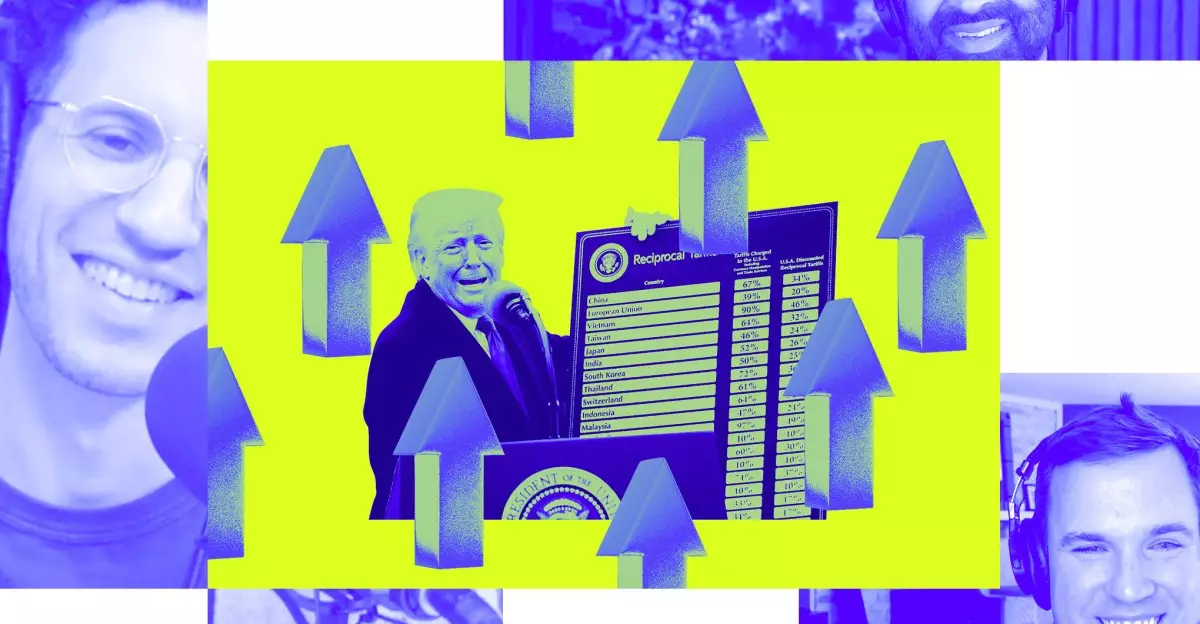In the whirlwind world of technology, uncertainty seems to be the only constant. The ongoing chaos surrounding tariff policies, especially those enacted or proposed by the Trump administration, stands as a significant barrier to innovation and stability. With terms and conditions shifting abruptly, tech companies are left scrambling to decipher the future of trade regulations that govern their operations. The current landscape presents a paradox where prices are constantly fluctuating; one day they rise, and the next they fall—leaving both consumers and businesses tethered to a confusing economic tether.
For tech giants like Nintendo, a delay in pre-orders can be strategic; it allows them to reassess pricing in response to these ever-changing tariffs. Smaller companies, however, face an existential crisis. Framework and others are left in limbo, constantly adjusting pricing models to remain competitive and viable. The immense unpredictability creates an environment where startups—like Tuneshine and Arduboy—are not just worried; they’re on the brink of survival. This is not just a hiccup in operations; it’s a seismic shift in how businesses are sourced, marketed, and sold. The ramifications will likely reshape consumer behavior in a society conditioned to expect immediate access to goods and stable prices.
Meta’s Troubling AI Tactics
In a supplementary twist to this narrative of instability, the advancements in artificial intelligence bring their own set of challenges. Recently, Meta was revealed to have manipulated AI benchmarks, an act that has shocked many in the tech community and reignited debates about ethics in AI development. Such revelations diminish the integrity of competitive landscapes and fuel skepticism about the metrics often touted by tech firms as indicators of success and reliability.
Additionally, the woes of virtual assistants like Siri further illustrate the challenges facing AI today. Users have often expressed disappointment in AI systems that fail to live up to marketing hype. Meanwhile, innovations like the Altman-Ive hardware project are tempting the vagaries of consumer interests, but the question remains: will companies prioritize genuine enhancement of user experiences, or will they falter into the trap of superficial improvements?
As if that weren’t enough, Shopify’s CEO Tobi Lutke’s new AI-first company policy has sparked widespread discussions on the future of workforce dynamics within tech ecosystems. The approach goes beyond mere automation; it signifies a pivotal shift towards systems that prioritize efficiency at the cost of human employment, raising critical ethical questions about the role of humans in an increasingly automated world.
The TikTok Conundrum
In the backdrop of these turbulent developments, the ongoing discussion around TikTok’s potential ban in the U.S. adds another layer of complexity. The ban reflects deep-seated anxieties regarding data privacy and national security, showcasing the unpredictable interplay of social media, politics, and consumer behavior. While proponents argue for the safety of user data, critics point toward the stifling of innovation and creativity that such bans incite.
Moreover, TikTok’s popularity has been a double-edged sword, with its rise igniting conversations about effective regulation and corporate responsibility in data management. The streaming service serves as a bellwether of current cultural movements, and tampering with its existence could have unforeseen effects on creator ecosystems and consumer engagement.
Industry Futures: The Road Ahead
As the Vergecast team expertly navigates these discussions, they shine a beacon of insight into the real-time implications of such convoluted issues. Each segment explored brings to light the potential for meaningful conversation around how innovation, regulation, and consumer expectations must evolve.
As industries grapple with the looming specter of tariffs, AI ethics, and the ambiguity engulfing platforms like TikTok, what we are witnessing is more than just environmental change; it’s a fundamental re-evaluation of what digital engagement and commerce should look like in the future. The tech industry is not merely adapting; it’s recalibrating itself to meet a world defined by volatility and uncertainty, propelling us forward into an interesting yet unpredictable technological epoch.


Leave a Reply